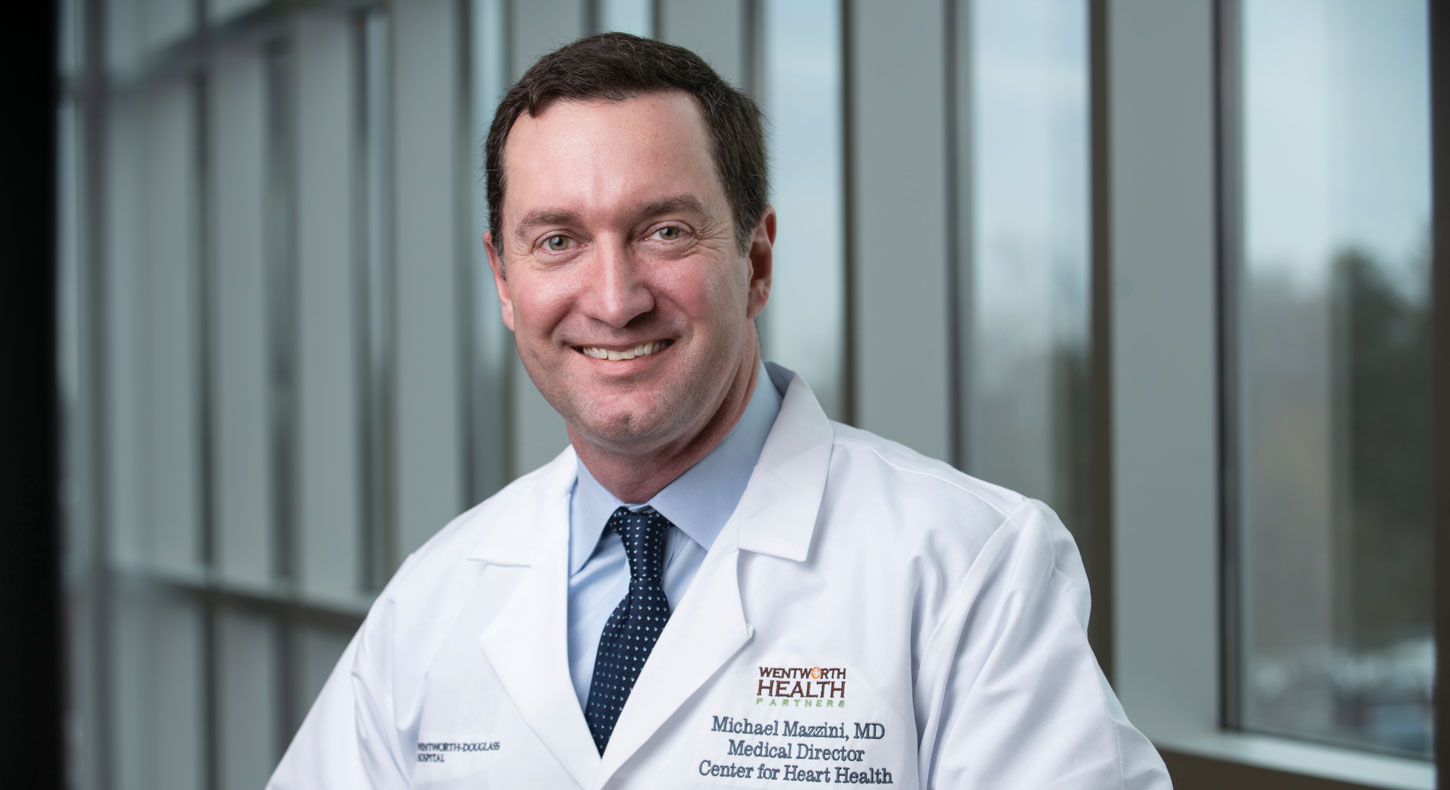Electrophysiology
Center for Heart Health

Cardiac Electrophysiology
Massachusetts General Hospital physicians
Our comprehensive Clinical Cardiac Electrophysiology program is led by renowned Massachusetts General Hospital electrophysiologists. They offer extensive non-invasive and invasive treatments for cardiac arrhythmias (irregular heartbeats) related to atrial fibrillation, supraventricular tachycardia (SVT), cardiomyopathy, heart failure or hereditary conditions.
Heart rhythm disorders can be caused by abnormalities in your heart’s electrical activity. They occur in patients with otherwise normal hearts as well as in patients with heart problems such as cardiomyopathy, congenital heart disease, heart failure or hereditary conditions.
Heart Care at Mass General Brigham
Arrhythmia
An arrhythmia is a disorder of the heart rate that may come and go or be present all the time.
Your heart may beat too slow, too fast, or irregularly. You might describe the feeling as heavy in your chest or palpitations.
Other arrhythmia symptoms may include:
- Fainting
- Light-headedness
- Shortness of breath
- Skipping beats, changes in pattern of your pulse
- Chest pain or tightness in your chest
Testing for Arrhythmia
You’ll have access to a full array of high-quality testing in our EP department, allowing our experienced clinicians to determine the best approach to treat your arrhythmia.
Tests that might be ordered to diagnose arrhythmia include an electrocardiogram (EKG), echocardiography (echo), transesophageal echo (TEE), heart stress test, Holter event monitoring, loop recorders, tilt table testing or an electrophysiology study (EPS).
Treating Your Arrhythmia
Once your arrhythmia is diagnosed, our team of highly-skilled physicians and nurses is expert at customizing treatment plans to decrease your stroke risk and reduce or eliminate your symptoms.
Rely on our expertise and our notable record for exceptional outcomes
Treatment for Arrhythmia
Cardiac Resynchronization Therapy (CRT)
If you suffer from congestive heart failure, cardiac resynchronization therapy (CRT), also known as biventricular pacing, uses a special cardiac pacemaker to help synchronize your left and right heart ventricles to make them contract at the same time and restore your heart’s proper mechanical sequence.
Implantable Cardioverter Defibrillators (ICDs)
Abnormal, fast heart rates can cause people to faint or caused their hearts to stop pumping properly. Sometimes medicines can be used to control these fast heart rates. When medicines do not work, doctors can implant an ICD. This small electronic device in the upper chest can help manage life-threatening abnormal heart rhythms, like ventricular tachycardia.
Pacemakers
A pacemaker is a small, implantable device that helps the heart beat in a regular rhythm. Pacemakers can help pace the heart in cases of slow heart rate, fast and slow heart rate, or a blockage in the heart's electrical system.
SVT Catheter Ablation
Catheter ablation for Supraventricular Tachycardia (SVT) is a minimally-invasive procedure usually done on an outpatient basis. An ablation catheter delivering very small radiofrequency lesions or electrocautery burns is used to successfully cure the SVT up to 98 percent of the time, depending on the specific type of SVT.
The Device Clinic
The Center for Heart Health offers device clinics in both Dover and Portsmouth for patients with pacemakers, implantable cardioverter defibrillators (ICDs), biventricular pacemakers/defibrillators (CRT-Ps and CRT-Ds), and implantable loop recorders (ILRs).
These clinics are staffed by specialty trained clinicians focused on monitoring your devices. Monitoring and evaluations are done both remotely and through office visits in close collaboration with your entire care cardiac care team.
You'll visit the clinic about six weeks after your device is implanted and for regular follow-up appointments, usually every six months, to continually check your progress and the device's function, including its battery life, connections, and testing to confirm it is pacing properly.
The Device Clinic staff is an excellent resource to provide support and information regarding your permanent pacemaker or ICD.
Make an appointment
(603) 516-4265 (Dover)
(603) 610-8070 (Portsmouth)
Chee Yuan Ng, MD
Massachusetts General Hospital-Cardiac Arrhythmia Service
Boston, MA 02109
See Profile